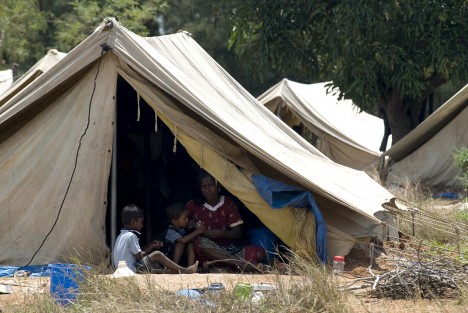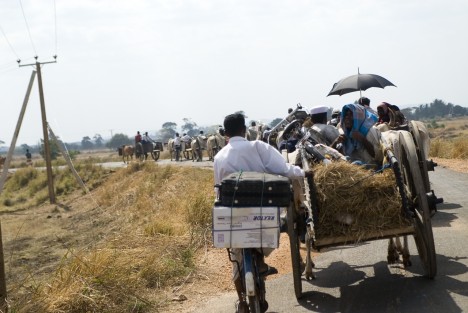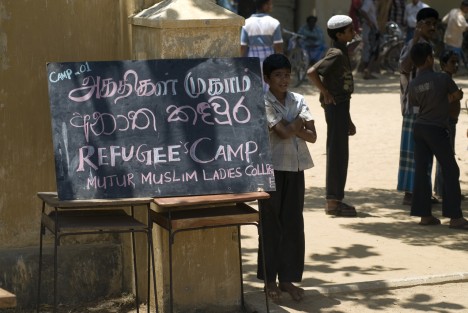International laws taunted and trashed in last days of Sri Lanka’s war
The months of July to November 2006 in North Eastern Sri Lanka were hot and tense. As the war continued, both the climatic and political temperature was getting more severe and intense. It seemed that it was just escalating with no reprieve from the bombings of busloads of new Sinhala military recruits and air raids on Tamil schools and villages.
All of the members of the international community in Eastern Sri Lanka waited with bated breath for the first move from either the Sri Lanka Army (SLA) or The Liberation Tigers of Tamil Eelam (LTTE also known as The Tamil Tigers) What was going to come first, a shower of rockets from the Tigers or a rumbling in of a bunch of tanks into the towns of Batticaloa or Trincomalee by the Army.
And then the IDPs would start moving again for the umpteenth time. That was predictable. The only question would be where would they move now? At least this time there would be less to carry, since most of them had just recovered from a recent displacement as a result of the spring offensive.
The trail of people and cattle moving from villages in Trincomalee district villages to Trincomalee town was slow and ardous, hot and dusty, and depressing and dangerous.
I asked people as they walked along how they felt about moving? All they could say is that they did not want to be accused of treason and massacred like the others who remained in their villages.
They said, “We have nothing to do with the Tigers and get nothing by suspicion from the Government, so we cannot win! We have no choice but to move to a safe place.” I asked them where that was, their reply was: “I don’t know.”
I went ahead of the column of people and ended up in Muttur, the site of the Muttur Muslim Ladies College, (insert pix here) where there were many people gathering. At the end of the long line up I saw SLA troops standing in front of a desk registering IDPs (internally displaced persons) as they entered the camp. Their faces wracked with fear and hollowed with hunger.
Many other international human rights and humanitarian conventions and treaties were being challenged by the events of 2007 in Sri Lanka. Everything from having breaches of Geneva Conventions – particularly the illegal targeting of civilian sites – like schools and hospitals and the setting up and running of IDP camps by Sri Lankan military personnel. UN personnel who tried to provide assistance were met with hostility and I remember one incident of a UN person reporting that his Laissez Passe (UN passport) was disregarded by a officer at a checkpoint.
As an international lawyer my assumption was that international laws should be respected and upheld, but they were being taunted and trashed. It was difficult for the international community to overcome the reputation that it had earned – that of being unable to stand up against those who were violating international legal standards from both the Tigers and the Government. And this made me sad about the fate of international law in internal conflicts.
It is so easy to lose one’s credulity as a keeper of law and justice in an international conflict when the conflict gets complex and protracted. It drew me to conclude that we must be cautious to ensure that in our negotiations and agreements with host governments that we have to ensure that the “right balance” of respect for State sovereignty and respect for International standards is maintained.
(Photos by Mats Lignell)
Jasteena Dhillon is an international Lawyer and legal researcher who has worked on human rights and development issues in conflict and post-conflict settings all over the world including South Africa, Balkans, Afghanistan, Iraq, Sudan and Sri Lanka . Currently, she teaches law in Toronto and previously she was a research Fellow at Harvard University



